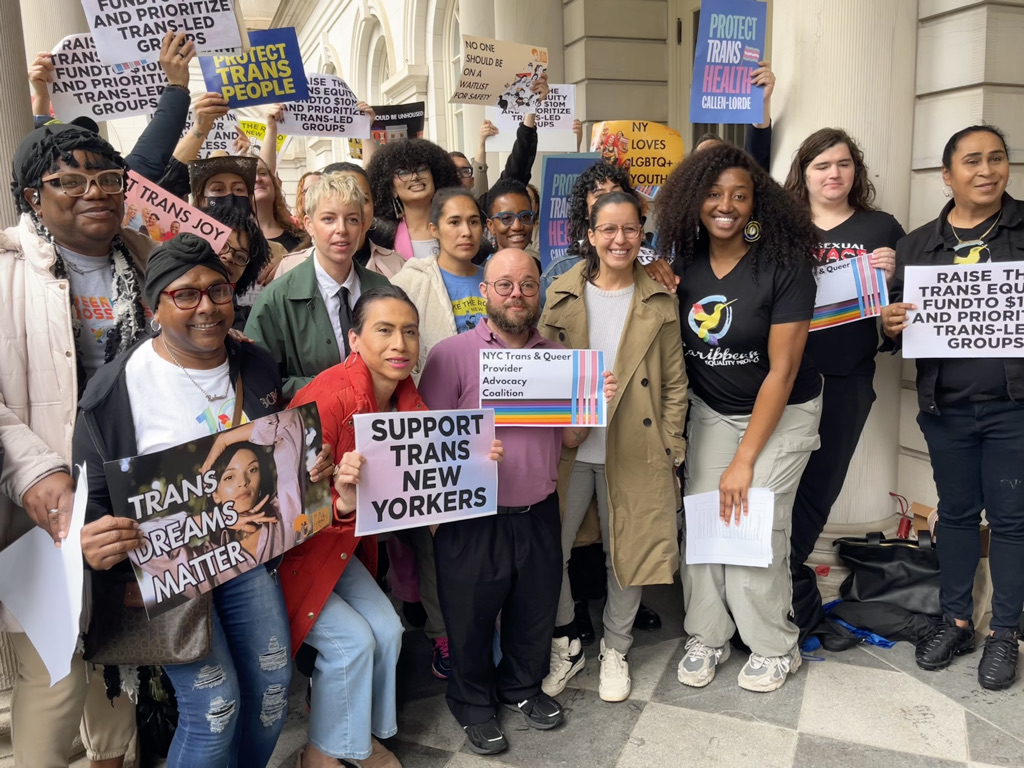By Lincoln Anderson
It was the week after the election and a longtime reader of this newspaper, a lifetime Village resident, called to say she was wondering why the paper hadn’t reported the results of the local Downtown races. Sure, she said, probably all the same people won, just like usual, as they’ve been doing for years — but still… .
She was right. There weren’t any surprises — and there weren’t any competitive races, either. Local Democrats faced little-known, token Republican challengers, and, in each case, solidly whupped them.
Local assemblymembers coasted to re-election, with Deborah Glick getting 87 percent of the vote, Richard Gottfried garnering 82 percent and Brian Kavanagh, 84 percent.
Sheldon Silver, the powerful Assembly speaker, won re-election uncontested.
In the state Senate, Tom Duane took 85 percent of ballots cast, while freshman senator Daniel Squadron was voted back into office with 86 percent.
Incumbent Democrats dominated in local congressional races, as well. Veteran Congressmember Carolyn Maloney — after fending off a tough primary challenge by East Villager Reshma Saujani — was returned to Washington with 75 percent of the vote, the same percentage that Congressmember Jerrold Nadler got. Topping them both, however, was Congressmember Nydia Velazquez, who won re-election with a whopping 93 percent of the vote.
In short, the “Tea Party revolution” definitely did not take hold Downtown, as the Republicans, as usual, went down to defeat again.
“I think we are very fortunate to have a very well-informed and involved constituency that has the capacity to express concern and disagreements in a rational and thoughtful manner,” observed Glick. “Therefore, it is not a surprise to me that the hysteria fomented by the Tea Party did not find fertile ground [here].
“My somewhat partisan view,” Glick continued, “is that the Republican Party has not offered up programs or ideas that are broadly supportive of people, and have generally sat back and said, ‘No.’ The Tea Party had people saying, ‘I don’t want government to touch my Medicare’ — totally uninformed and stupid. The Democratic Party, historically, is the party that offered support for middle-class and working-class people, since the days of Franklin Roosevelt.
“The Tea Party’s message was that they were very angry. They wanted smaller government and fewer taxes,” Glick noted. “Where the Republicans won they were marginally Democratic areas.” In some of these cases, Democrats had won these seats in 2008 in areas that were typically Republican.
Glick, who represents Greenwich Village, has been in the Assembly 20 years, which might seem like a pretty long time. However, Gottfried, who was elected when he was a 23-year-old Columbia law student, has held his Chelsea seat for 40 years — an Assembly record.
“Staggering,” Glick noted of Gottfried’s longevity. She said her colleague’s record is not at risk from her, noting, “I can say one thing for sure — 20 years from now, I will not be in the Assembly.”
Gottfried said his margin of victory in this year’s race, 82 percent, equals what he got in 2008, and that it’s his all-time high for whenever he’s faced a Republican candidate. So, “at 40,” he’s the strongest he’s ever been.
“I’m quite happy,” he said of his win. “I really get an enormous amount of satisfaction out of my work. I’m just always delighted when I’m rehired.”
Gottfried is long past celebrating his now-routine Election Day romps with post-election parties and bubbly.
“I had a slice of pizza and a glass of Diet Coke at the Chelsea Reform Democratic Club,” he noted, adding he did later go to the Sheraton Hotel where the statewide Democratic candidates convened after their wins.
Gottfried hasn’t faced a Democratic primary challenger since ’92.
He said he knew very little about his Republican candidate in this past race and had never met him.
“I did know who he is. His name is Michael Chan — from Hong Kong,” Gottfried offered.
“In my area, almost anyone running on the Democratic line would be a strong candidate,” he added. “I think the fact that Manhattan Democratic officials rarely have primaries and rarely have election contests is a testament to the fact that Manhattan residents are very vocal and active and keep their legislators on their toes. A candidate that is up to that is going to be a strong candidate. Being held to that standard keeps you in good shape.
“I think Manhattan residents have very solid, progressive values by and large,” Gottfried noted. “I think the economic and social diversity of Manhattan has to do with that. There’s also a certain amount of self-selection — most Manhattanites chose to come here and live, or chose to stay here and live. If you live in New York City, you see on a daily basis how important government is in our lives — from mass transit and hospitals to educational institutions.”
Not surprisingly, Gottfried is not a believer in term limits for state legislators.
“I think term limits ought to be in the hands of voters every two years,” he said, referring to the length of state legislators’ terms and the power of constituents to vote them in or out of office.
Asked for comment on his own re-election and Democrats’ firm hold on Downtown Manhattan, Silver said, “New Yorkers are progressive to the core. Whether it’s protecting affordable housing, expanding access to healthcare or fighting for civil rights, I believe that government has a real role to play in making people’s lives better.”
Asked if he was concerned about some early rumors that Governor-elect Andrew Cuomo might be angling to stage a coup against him and depose him as speaker, Silver said he wasn’t worried.
“No. New York has serious challenges,” Silver said. “Right now I’m focused on working with Andrew Cuomo to get New York’s fiscal crisis under control and get our economy moving again.”
Meanwhile, Frank Scala, president of the Albano Republican Club, does feel the tide is, in fact, starting to turn in favor of the G.O.P. in both the state and city. A Stuyvesant Town resident, Scala has in the past run against former Councilmember Kathryn Freed and former Assemblymember Steve Sanders, whose seat Democrat Kavanagh now holds.
In a heavy Italian accent, Scala spoke in a phone interview from his E. 30th St. barbershop, La Scala — “like the opera,” he noted.
“The Republicans decide to wake up a little bit,” he said over the sound of whirring electric shears. “We pick up seven congressional seats in New York State.”
A problem for the G.O.P., though, he acknowledged, is that New York City voters tend to back the straight party line.
“New York City go for the Democrats. They gotta do if the person is good,” he said, as in, voters should base their decision on the individual candidate, not solely the party.
“The Tea Party, it’s O.K., wake up a lot of people,” Scala said. “I think it’s a good idea. We gonna be in great shape.”
Randy Credico, another local candidate, not an incumbent, didn’t fare too well running on a third-party line. A stand-up comic and former head of the William Kunstler Fund for Racial Justice, he ran as a Libertarian against U.S. Senator Chuck Schumer after failing to qualify for the Democratic primary. He got 0.6 percent — or 26,000 votes — on Nov. 2 to Schumer’s 2.7 million votes.
“I lost my interest after Schumer and the state Democratic Party knocked me off the Democratic primary ballot,” Credico said. “I lost even more interest when I was restricted to one box on the ballot, even though I was nominated by two parties. The judge ruled in my favor but stayed the decision till after the election. I am writing a scathing retrospective on the process, particularly on the spiritually and corrupt Democratic Party of New York, which is anything but democratic. As Senator Charles Sumner said in 1854, ‘A politician loyal to a party cannot be trusted.’ ”
Unlike Gottfried, former Mayor Ed Koch said he does believe in term limits for both city and state elected officials. On Nov. 2, in a stinging rebuke to the City Council and Mayor Bloomberg, New York City voters strongly backed returning to a limit of two terms, overturning the Council’s legislative extension of term limits in 2008. But Koch said he supports a limit of three terms, not two.
Through his New York Uprising group, Koch has been leading the push for reform in Albany. In the state Senate, with 62 seats, all but eight members have signed onto the Uprising pledge; in the Assembly, with 150 seats, 83 have signed.
“So we have a majority in both Houses,” Koch said. The pledge calls for three specific things: independent redistricting, ethics reform and a GAAP (generally accepted accounting principles) balanced budget. So far, though, Silver has failed to sign onto the pledge.
“Ultimately, I don’t give up,” Koch said, “and hope that I’ll be able to get Shelly to join the reform movement.”







































